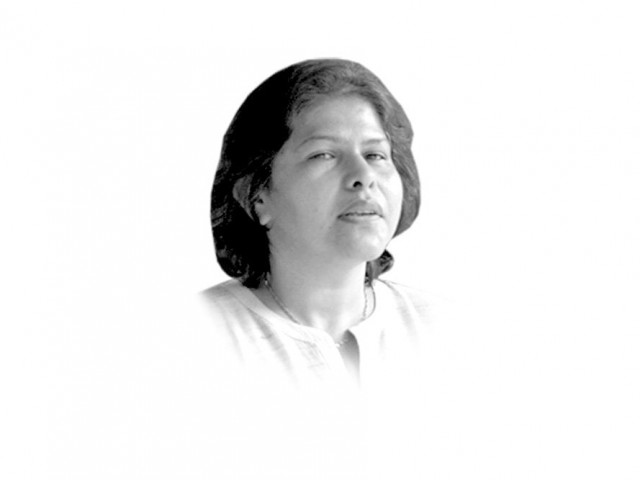The business of thinking
More than books & internet, it is a research community which is needed to prepare society to ask critical questions.

The writer is an independent social scientist and author of Military Inc.

Such consistency requires well-trained people and a strong and independent academia which Pakistan has not produced. Research is not a forte of most newly developed private universities and the public sector centres of higher learning have dwindled in terms of their quality of research. One of the factors, particularly in the weakening of traditional social science in this country, is the dominance of security studies and relevant areas. Instead of trained academics we mostly have retired practitioners teaching these subjects and, in fact, dominating traditional social sciences and research and analysis in general. The army of defence analysts has multiplied to an extent that it has almost become a stigma to be considered as one.
Majority of these retired analysts couldn’t even write serious research papers to save their lives. The others follow, thus, producing a category of what I call ‘mediademics’, a combination of media people and aspiring academics. A lot that comes out of such think tanks is based on information provided by a particular source and is meant to push a certain perspective.
However, the think tank business seems to flourish with lots of money being poured in by foreign donors. The Germans, in particular, seem fond of giving funds to think tanks and finance activities, mostly in the realm of opinion gathering or opinion formation. Others include the British and the American. The focus of a lot of activities appears to be in the area of foreign and security policies. The high amount of attention to these issues can be gauged from the fact that one particular German foundation earlier reputed to work on larger socio-economic issues and for its great capacity to support activities of committed institutes and NGOs relocated to Islamabad to concentrate on policy matters. A good friend, familiar with the donor industry, is of the view that the agendas of think tanks and the NGO sector at large is determined by their financial donors. So, the security and foreign policy sectors get attention because donors want to influence outcomes. It is true that donors have their worldview and would like to influence thinking through recipient institutions. The issue is, can they, especially as far as the above-mentioned areas are concerned? And if they cannot, then here is a serious matter of lack of accountability both of the donor and the recipient organisation.
I am reminded of an invite by a German foundation to a seminar on nuclear security related issues, which was meant to facilitate a debate dominated by the National Defense University. The majority included cast of characters that normally get paid to deafen the establishment with its own lies or half-truths. In another case, a think tank in the process of being born has organised an India-Pakistan track-II which has aimed at excluding alternative voices. Majority of the players, who will benefit from the event, include retired generals and diplomats that probably need some activity which keeps them out of the way of their spouse or generally keeps them busy pretending to guard the interests of the state. One may not expect any different outcome from this affair as what we get from similar track-II exercises. Perhaps, it would have befitted the think tank more to invest into research that can help inform the debate. And I mean real research rather than what one particular think tank in Islamabad did a year ago, which is gather opinion from a set of people and then frame it as a popular policy perspective on Afghanistan. Incidentally, the paper was funded by an American donor and the report writing, as admitted by a senior person of the think tank, influenced by those that would like to keep both the US and Pakistani establishments happy.
The three examples may be scant but they reflect the truth that the donors want to engage policymakers but not necessarily make them review their positions because they feel the social science community in Pakistan lacks capacity to negotiate certain biases. Thus, the conclusion is that donors are conscious of their inability to influence attitudes and so only invest in partners and networking that might help on a future date. From Pakistan’s perspective, these abovementioned cases indicate serious dearth of a genuine research community which has the capacity to produce results that would feed the establishment or anyone else in the market (here it is necessary to mention a worthwhile effort of German funding in capacity-building at Quaid-e-Azam university, a public sector university, teaching social science students the art of research and analysis). More than books and internet sources, it is a research community which is needed to prepare the society to ask critical questions and get their answers.
Published in The Express Tribune, June 12th, 2014.
Like Opinion & Editorial on Facebook, follow @ETOpEd on Twitter to receive all updates on all our daily pieces.














COMMENTS
Comments are moderated and generally will be posted if they are on-topic and not abusive.
For more information, please see our Comments FAQ